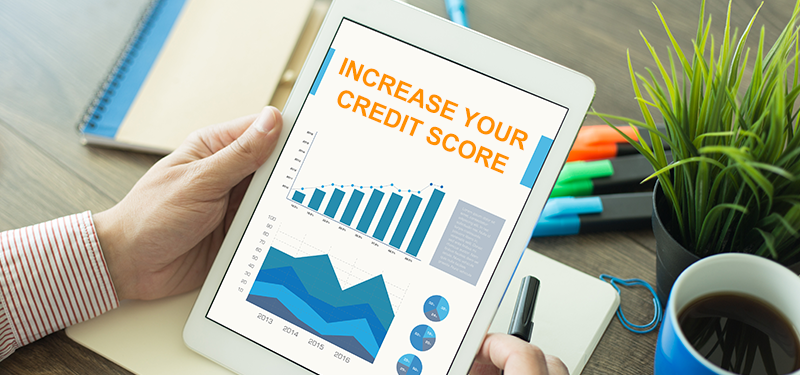How Does A Credit Score Work?

A credit score is a three-digit number that ranges from 300-900 (although we have rarely ever seen a score below 400). Your score is calculated by the credit bureaus. Generally, lenders and banks consider a score of 750 and above as ideal. Each credit bureau uses it's own algorithm to compute credit scores, although the FICO model is the most commonly used for lending. It is calculated after taking into consideration factors such as payment history, credit utilization, credit age, and credit type. Let’s take a look at all of these factors in detail with the level of impact they have on your credit history and score.
Your credit score is rated through five different factors:
Payment history
Your payment history is responsible for 35% of your FICO credit score. While it’s mostly determined by on-time payments, other parts of your payment history include:
Examples include...
How late the payments were
The amount that was owed
How recently the late payments happened
The number of late payments
Long-term/serious delinquencies:
Bankruptcies
Lawsuits
Property liens
Judgments
Types of accounts (also known as your “credit mix” mentioned below)
The most straightforward way to improve your credit history is making payments on time. However, remember that minimum payments on installment loans work differently than minimum payments on open credit lines like credit cards. Even if you’re meeting credit card minimum payment requirements on time, you may still end up with a high balance on the card, which will negatively impact your credit score. To learn more about this, read below about credit utilization.
Credit utilization
It's a ratio that influences 30% of your FICO credit score (the most commonly used score by lenders) and is determined by how much total debt you have compared to how much credit you have available.
Credit utilization ratio is determined by:
The percentage of open credit line in use (credit cards)
The number of accounts with outstanding debt
The amount of debt you owe to lenders
The amount of debt owed on individual accounts
The percentage of debt still owed on installment loans (auto loans, personal loans, and mortgages)
It’s important to stay on top of your spending and, if you can, pay off the balance on your credit card periodically rather than waiting to pay it off in one large sum.
Length of credit history
The length of your credit history, or how long accounts have been on your credit, determines about 15% of your FICO credit score. This percentage can be broken into three parts:
How long accounts have been open
How long specific account types have been open
How long it’s been since those accounts were used
Industry experts recommend you avoid closing out credit lines that you’ve had for a long time when trying to improve your length of credit history. However, it’s still important to stay active in your accounts so they don’t qualify as unnecessary credit.
Amount of new credit
This determines 10% of your FICO credit score. The factors that play into this percentage are:
Positive credit information on a recovering credit report (actively using a credit card and making timely payments on an account that used to make late payments)
How many accounts have been opened in the past 6-12 months/how long it’s been since you’ve opened any new accounts (and what those accounts are)
How many credit inquiries have been made recently and how long it’s been since any credit inquiries have been made
Improving your credit score in this category starts with having a credit history. Applying for loans means being subject to a “hard inquiry,” which is basically a background check on your credit history. For people with extensive credit histories, this type of inquiry may only shave five points off their credit scores, but if you have a less established credit history your score could take a more serious hit.
Try not to apply for more credit than you need; subjecting yourself to multiple inquiries in a short timeframe could impact your credit score. This doesn’t mean you should never apply for credit cards and loans, just think critically about how much credit you need before taking it out.
Credit mix
This is the different types of accounts you have listed on your credit report. It's the variety of credit items you have, and this determines another 10% of your credit score. The kinds of debts and how they impact your score are:
Credit cards
Retail accounts (department store credit cards)
Installment loans (loans you make payments on regularly, like car and student loans)
Finance company accounts (loans taken out through lenders that specifically offer high-interest loans to people who wouldn’t otherwise be able to get a loan)
Mortgage loans
Creditors want to see that you’ve had experience with various types of loans. However, there are some types of loans that will still negatively impact your credit score, such as finance company accounts that indicate the debtor was not approved for a loan through other financial institutions with lower interest rates, and some retail accounts that indicate frequent spending on luxury goods. Some debt is good debt, but try to avoid taking out loans through less reputable institutions.





